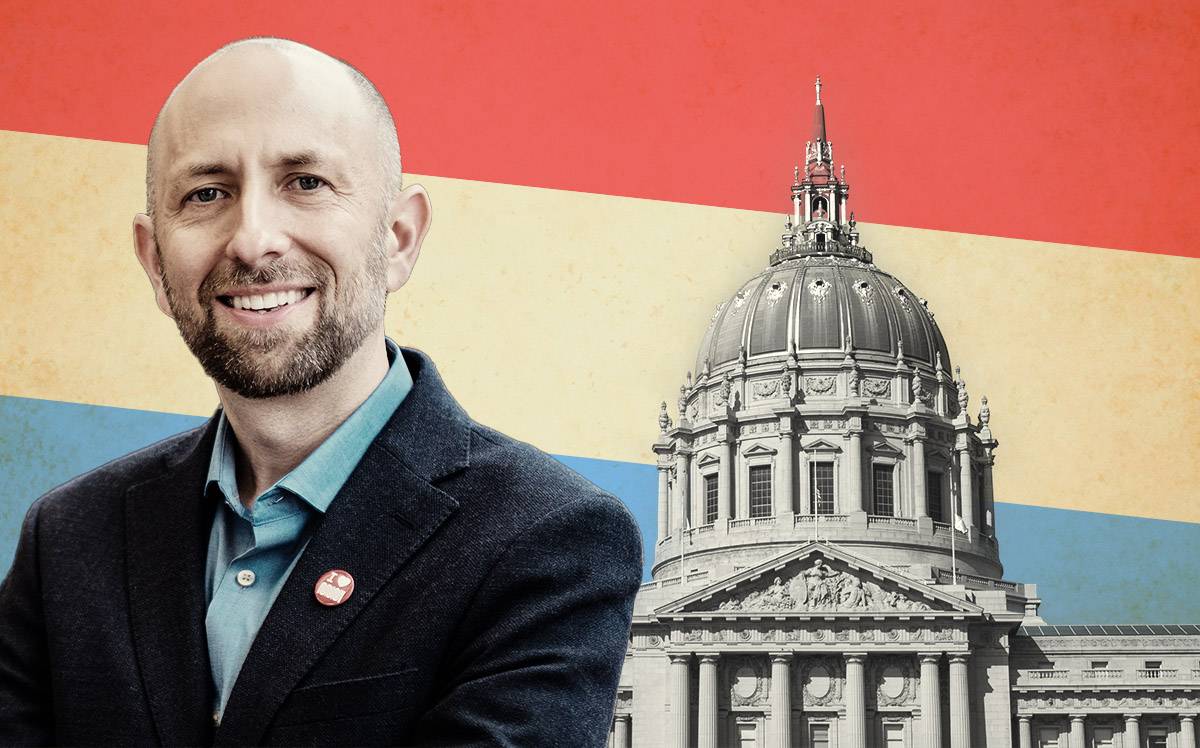Jane Natoli has a spot on the front lines of San Francisco’s heated political battles over housing development.
The organizing director for SF YIMBY Action lost her bid to sit on the city’s Democratic County Central Committee — the powerful but little-known group that decides which candidates and platforms the local Democratic Party endorses — four years ago, but she said a lot has changed in the city and for the pro-growth cause since then.
“I don’t think we were quite as organized,” she said of the 2020 elections. “I think that was pretty apparent by the results. No one on our slate, other than the top names that people already knew, won.”
But Natoli said 2024 will be different. SF YIMBY Action makes endorsements for state legislators as well as city supervisors and state and local ballot measures.
Natoli spoke with The Real Deal about the pro-development organization’s new approach, how it has gained wary affordable-housing advocates on its side, and why the young movement still has more to learn.
What kind of support do you get from developers?
We have a lot of business members. Most of them are not just San Francisco, more Bay Area. They’re trying to propose good projects that we want to see built.
An example of a business member I’ve been working with recently is Brookfield, who is doing the redevelopment of Stonestown. That’s a really huge opportunity for San Francisco, and they’ve been an active and engaged business member.
How has YIMBY tried to bridge the divide between for-profit developers and the nonprofit affordable housing side?
The origin of that distrust, I think, goes back a lot to the origins of YIMBY within the Bay Area, and in San Francisco in particular.
I don’t think there’s any way to sugarcoat where the movement started: a lot of mostly young, mostly white, mostly affluent people who work in tech or tech-adjacent industries were saying, “Huh! My rent’s a lot. I would like it to be lower.”
This is where we started from, and whether or not that’s still who we are, reputationally a lot of that kind of stuff sticks.
People are like, “Oh, they aren’t going to be out there supporting affordable housing. They just want to build a luxury condo in the Mission.” We have to acknowledge that in the early days of the movement, we definitely lacked a lot of that nuance and kind of jumped feet first into San Francisco politics — and it’s a complicated space.
So what’s the solution?
The only way that you can really, truly work on that as an organization is by showing up for the things that you say you’re showing up for. Certainly we have some affordable housing developers who’ve come along sooner than others. Mission Housing Development Corp. has been a strong partner.
I think what really unlocked it and started to move all these relationships in a better direction was 2550 Irving. That is something that we’ve consistently shown up for from the first meeting, and said, this is precisely the kind of housing that we need in this neighborhood. The Sunset hasn’t built any affordable housing in decades and this is a huge opportunity.
Do you see any changes in the dynamic with neighborhood groups, which often oppose housing?
I don’t think that the neighborhood groups have changed. I think what has changed is we have better state and local laws. So when push comes to shove, most of our legislators know if we cross this line, we may get sued by the state.
The current rezoning effort is stirring up a lot of opposition from neighborhood groups. They’re still strong and they still have their set of beliefs about the way San Francisco should be, and how the development process should be and politicians listen to them.
They help get people elected.
It’s great that people care a lot about the places that they live. But it can get a little toxic when it becomes, “I care about where I live, and I don’t want it to change at all.”
Because the idea that any of us can control that change is a little ridiculous. Change is going to happen, whether or not we want it to. Our option is, how do we participate in it?
Our bread and butter is organizing and building people who are showing up and saying, “Yes.” It is not, nor do I think it ever will be, trying to change some of those neighborhood associations’ minds. It is a lot harder to change someone’s mind if they have a set opinion than it is to organize people who agree with you, who just might not have ever realized, “Oh, my neighborhood association doesn’t really speak for me.”
How much has SF YIMBY itself grown?
We are a national organization and we have 53 chapters in 20-plus states. So as the resources of the organization have grown some of that is scaling elsewhere.
Between YIMBY Action and YIMBY Law, we’re a $3 million organization and we have employees everywhere, but this is still our largest chapter — over a thousand active members in the city and over 14,000 people on our mailing list. And certainly this is where many of our largest donors live and call home.
How has the YIMBY movement exported its message to other places around the country?
One of the major things we’re seeing is that housing is a top priority for voters. People care about this. It may be more exacerbated in San Francisco, but you’re probably still paying too much for rent in Dallas, or in Arlington, or in Minneapolis, or wherever we have these chapters that are active and growing. This is a winning issue.
A pro-housing message can come in a lot of ways and we’re here to support each other and learn from each other and give each other those tools.
We’ve been doing it a little bit longer here in a more organized fashion. But we’re still a young movement. I have T-shirts that are older than YIMBY.
How will the elections for DCCC [Democratic County Central Committee] candidates in 2024 differ from four years ago?
I don’t think at the time a lot of us recognized the challenges that exist. It’s a big city. It’s hard to reach a lot of people. It’s a down-ballot race that is low information. People don’t necessarily connect that this person isn’t necessarily supporting their interests. I can’t blame them — who has time to research 36 names on a ballot?
A lot of the organizations that have sprung up since, like GrowSF and TogetherSF, have really worked to try and educate people and help people be aware that everyone in this town is basically a Democrat, so that doesn’t necessarily reflect that they are pursuing similar values that you want to see reflected in the party when they’re elected.
That kind of voter education that has been going on for a couple of years coupled with the fact that there’s more organization sets up the people who are running this time for a lot more success.
What are some indications the discourse is shifting in YIMBY’s favor?
I think the election of some of the supervisors that we saw in 2022 is a good sign.
Certainly, Joel Engardio, he has been a long-time supporter and was the first sponsor out of the gate on our recent constraints reduction legislation. Similarly, the election of Matt Dorsey, and even just that the top two candidates for supervisor in District 6 both had good pro-housing platforms. The election of Matt Haney at the State Assembly level, and his evolution towards more YIMBY policies the longer he sat on the Board of Supervisors. I think Catherine Stefani of District 2 has quietly been very good on the board.
There’s a lot of other signs that have been very hopeful that people are embracing pragmatism here. The rent is too high, right? And if you can’t rent, how are you supposed to be able to afford a home here? It wasn’t accessible before interest rates went up, and now it’s even harder. We need to embrace a path that will move us in a more positive direction with that and electing pragmatic leaders that get that.
Read more


